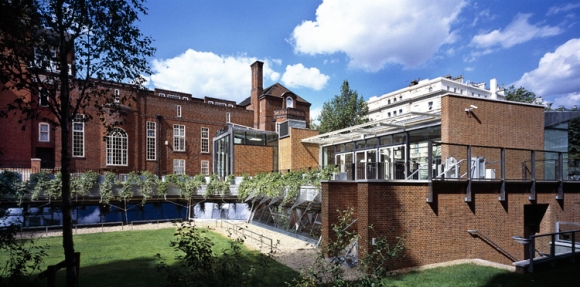Two members of the Politics and Matter cluster – Joanna Mann and Merle Patchett – are organising a session to be held at the annual RGS-IBG conference this summer on the theme of skilled practice and co-production. If you’d like to take part then we’d love to hear from you! Details below:
Call for Papers: 2014 RGS Annual Conference, London 26-29 August 2014
Geographies of skilled practice and co-production
Session abstract: What is the place of skilled practice in the 21st century? Does the frenetic pace of life and availability of new technologies augur the death of skill or are we simply becoming skilful in different ways, in different settings and through different means? Where past conceptions of skilled practice have focussed on notions of the solitary artisan refining techniques alone or under a master in the workshop, geographers are increasingly paying attention to the ways in which skill is co-produced between different actors (both human and non-human), technologies and materials in and across a variety of temporal and spatial scales, contexts and settings. In this session we thus want to make space (and time) for papers that offer theoretical reflections on skilled practice and processes of becoming-skilful, as well as papers that showcase committed empirical engagements with skilled practice and its geographies of co-production.
As such we invite papers exploring, but by no means limited to:
* The place(s) and relevance of skill in contemporary life
* Theoretical reflections on skill and becoming-skilful
* The learning and refining of skills – i.e. how is skill co-produced?
* The ethics and/or politics of skilled-practice as a form of co-production
* Ethnographies of skilled practice
* The influence of technology and the non-human within skilled practice
* The use of ‘skill’ as a geographical research tool
* Challenges of witnessing and articulating skilled practice
* What counts as ‘skilled’ practice?
If you are interested in participating, please submit an abstract of no more than 250 words to Joanna Mann (Joanna.mann@bristol.ac.uk) and Merle Patchett (Merle.patchett@bristol.ac.uk) by Friday 7th February 2014.
***
Longer version: Geographers have long worked with skilled practitioners to co-produce research in a whole variety of contexts. Recent examples include DeSilvey et al’s (2013) stories of menders in Southwest England, Richard Ocejo’s (2012) examination of cocktail bartenders, and Patchett et al’s (2011, 2012) collaborative re-workings of taxidermy specimens. In all of these instances, the work carried out is trying to access knowledge which is rooted in deep practice and elucidate it for means of preservation, theoretical exemplification, or the passing on of techniques.
Meanwhile, theoretical insights from outside of geography are changing understandings of what it means to co-produce skill itself. Anthropology, for instance has shown how skills are generated in fields of force and through circulations of materials that cut across boundaries (Ingold, 2013; 2000). Sociology has highlighted how skills develop within processes, and become highly attuned to problems the more it is honed (Sennett, 2009). Meanwhile academics working within the theoretical realms of new materialisms have emphasised a move away from these romantic inflections to look at the capricious and unruly matter of matter, further enabling geographers to look at the materials of co-production without negating new technologies as forms of skilled practice in themselves (Bennett, 2010; Connolly, 2013).
Furthermore, the recent turn towards practice-based inquiry has witnessed academics using their own skills, both new and existing, as part of their research. James Ash (2012; 2013) uses his existing skills of video gaming to theorise affect, temporality, and technicity, whilst Tim Ingold (2000; 2013) often draws on his experience of cello-playing to illustrate arguments. The task of becoming proficient in such skills has also proven to be strong academic fodder whilst interrogating topics as varied as glass blowing (O’Connor, 2007) and corncrake counting (Lorimer, 2008). Yet, the skilled practices involved in academic work itself – both of writing and research methodologies – can also provide a fertile ground for thought, as evidenced by recent insights on archival methods (Lorimer, 2010), innovative phonographic work (Gallagher and Prior, 2013), and performative writing practices (Dewsbury, 2014), amongst others.
In this session we want to move beyond the plethora of methods advocating ‘make-do’ techniques and DIY cultures and make space (and time) for papers that offer theoretical reflections on skilled practice and processes of becoming-skilful, as well as papers that showcase committed empirical engagements with skilled practice and geographies of co-production.
If you are interested in participating, please submit an abstract of no more than 250 words to Joanna Mann (Joanna.mann@bristol.ac.uk) and Merle Patchett (Merle.patchett@bristol.ac.uk) by Friday 7th February 2014.
